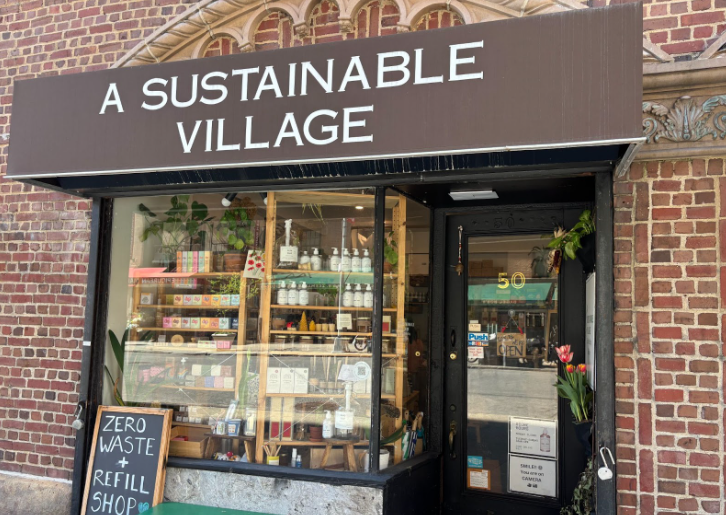On Sept. 17, protestors marked the one-year anniversary of the Occupy Wall Street movement with protests and marches around the city, resulting in the arrests of nearly 200 demonstrators.
In the year since OWS’s commandeering and subsequent expulsion from Zuccotti Park in downtown Manhattan, there has been little to no mainstream media coverage of the movement.
Speaking a week after OWS’s resurgence into the political fray, Prof. Christopher J. Malone, associate professor and chair of the Political Science Department analyzed the changes OWS was able to create in American politics.
“In the first year of the movement,” said Prof. Malone, “OWS was very vital in changing [the] conversation we were having as a country. In August 2012, [President] Obama was in negotiation over the nation’s debt with Republicans. Most Americans sided with Republicans on not bringing on more debt.”
Prof. Malone said that when the protests started, the national conversation changed: “Over the next few months the national conversation was income inequality, so OWS was very successful about changing the conversation, because it went from debt and deficit to income and inequality. We see the residue in [the upcoming] election since Obama hasn’t been successful about talking about this issue.”
Prof. Malone admitted that the group floundered after their November 15, 2011 eviction from Zuccotti Park.
“When the protestors were kicked out of Zuccotti Park, the high profile nature of movement went away as well. When cameras went away, people wondered, ‘Were they still doing things?’”
But Prof. Malone warned that the movement was unlikely to develop much traction without the support of the media. “Public and mainstream media have not looked at it as being effective in what it’s done since last year. It is more of a question of the mainstream media, whether it feels that OWS is important enough to remember or cover. If the movement is not in the headlines people think it is gone.”
Some university students have a different perspective on the movement. Fabrice Joseph, senior, said, “I think [it’s] a rightful movement, however it wasn’t done properly. They did manage to bring awareness to the disparities between the middle class and the upper class. …[But] the message didn’t get though, and as the movement went on it became a joke. It progressively fell into chaos.”
Samantha Yu, senior, felt strongly about the movement and its inconvenience to university students specifically: “I think that the movement is very unorganized and it’s really chaotic and they inconvenience most people. [At Pace, the] Police was such a presence around school [that] they blocked entrances. [In the park] There was a lot of violence and criminal activity going on. There were people who weren’t there to protest they were just there to be there.”
Yu also remarked on the trouble the movement caused for commuters. “It kind of messed up my finals schedules. I had to make a two and a half hour commute, because they threatened to close train stations. I ended up having to make a longer commute. They have no consideration for people who possibly believe what they believe in but aren’t protesting. They literally stopped people from going to work.”
When asked if she took the movement seriously, Joseph said, “I don’t take the movement seriously, but I take their cause seriously. They had no organization and no leadership. It seemed like a bunch of hippies bored standing around. In the midst of the financial crisis, you see these corporate officials getting big bonuses, doing well; I can see where people get upset.”
Yu was not sold on the movement, however. “It’s difficult to take them seriously when they have no message,” said Yu. “They say ’99 percent’ but we all are struggling, and we aren’t protesting, we are just looking for jobs. Instead of yelling and blaming people, [they should] do something about it. The movement was disorganized and completely chaotic and they didn’t have a real message besides ‘we are the 99 percent.’ It became violent chaos in some instances; it’s hard to support a cause that doesn’t know what it’s fighting for to begin with.”
Prof. Malone maintained that the movement could re-gain some of the legitimacy lost in the past year. In the book he coauthored with university Political Science professors Meghana Nayak, Matthew Bolton, and Emily Welty, titled “Occupying Political Science: The OWS Movement from New York to the World,” Malone writes about OWS’s minimal participation in electoral politics. He believes that if the OWS movement became more involved in electoral politics, the movement might gain more success.
“The core of the movement is ‘we don’t engage in the electoral progress, we are talking about something else.’ It’s about how you change the system but by being outside of system. For instance, the Tea Party in 2009 to 2010 was successful in getting Republicans. Electoral politics didn’t materialize until later. The Tea Party formed in Spring 2009 when Obama announced a stimulus package of 750 billion dollars. People channeled that anger into running for electoral office.”






